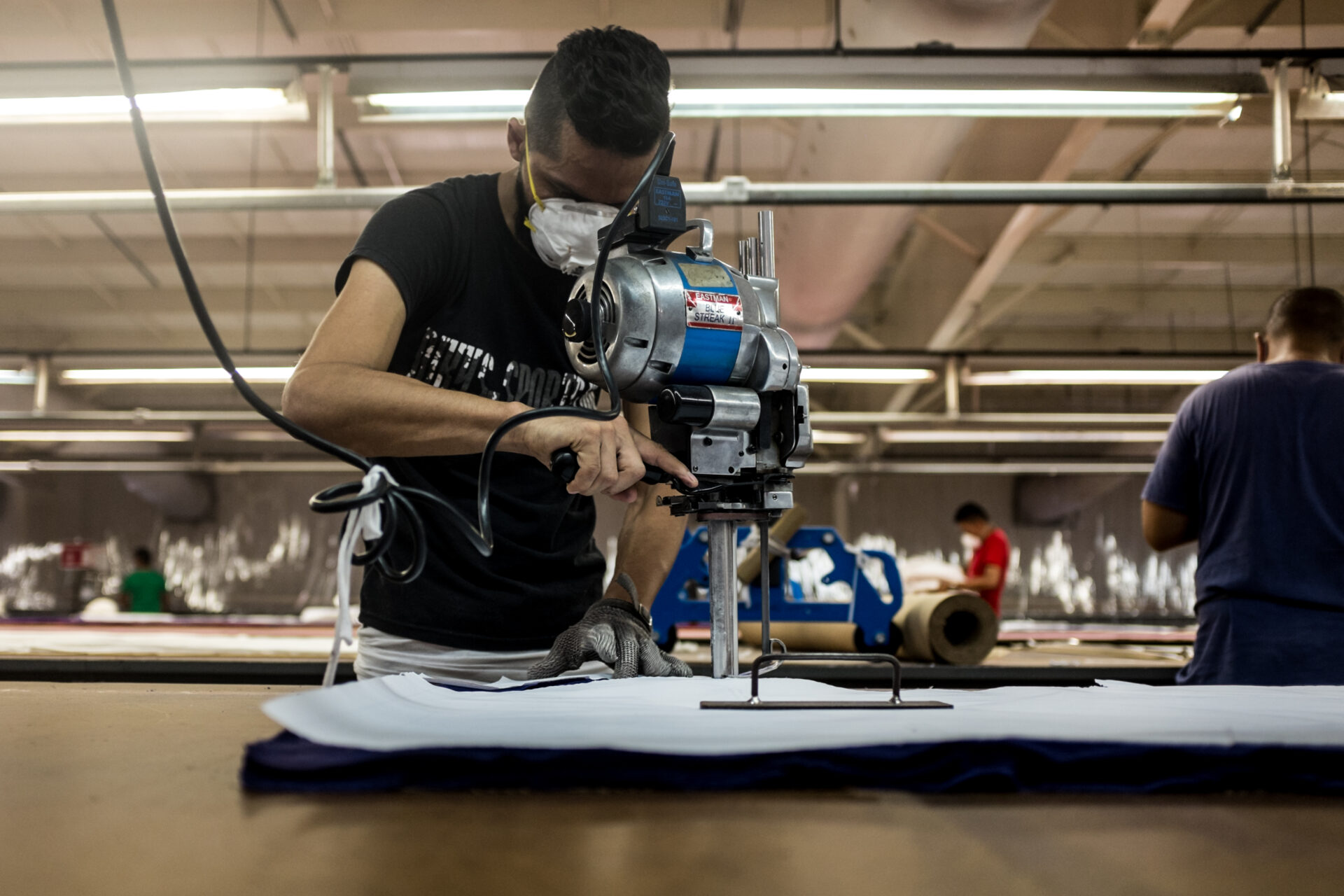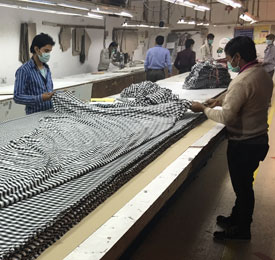Manufacturing standards
When a company joins the FLA its leadership makes a commitment to the Principles of Fair Labor and Responsible Sourcing and/or the Principles of Fair Labor and Responsible Production and agrees to uphold the FLA Workplace Code of Conduct in its supply chain.
Members are assessed regularly against the principles. A company that adheres to the principles and benchmarks may be accredited by FLA.
The Fair Labor Workplace Code of Conduct and Fair Labor Principles are applied at different parts of the supply chain and work in tandem to protect laborers and improve working conditions. FLA member companies implement the Fair Labor Principles at their company headquarters, and work with suppliers to implement the Workplace Code of Conduct and Compliance Benchmarks in the factory.
Fair Labor Principles focus on the systems, frameworks, policies, and procedures a company must have in place to ensure that workers’ rights are respected in its global supply chain. The Principles look at how a brand integrates workers’ rights into its decision-making process, how it will monitor factories, and how it will remediate non-compliance. The Fair Labor Workplace Code of Conduct is focused on the manufacturing facilities themselves; it sets out the standards that the factory must have in place to protect workers’ rights.
Manufacturing standards

Fair Labor Code and Compliance Benchmarks for Manufacturing

Principles of Responsible Sourcing and Production for Manufacturing
Factory assessments
Factory assessments
Types of factory assessments
Approved monitoring organizations and assessors
When a company joins FLA, it commits to achieving accreditation of its social compliance program within five years of being approved as an FLA member. Companies are also required to actively participate in any Fair Labor Investigations accepted through the Third-Party Complaint channel.
Fair Labor Accreditation sets a company on a concrete path to improving labor conditions in its Tier One and owned manufacturers. Each milestone represents key building blocks companies needs for an effective social compliance program that improves working conditions and worker well-being.